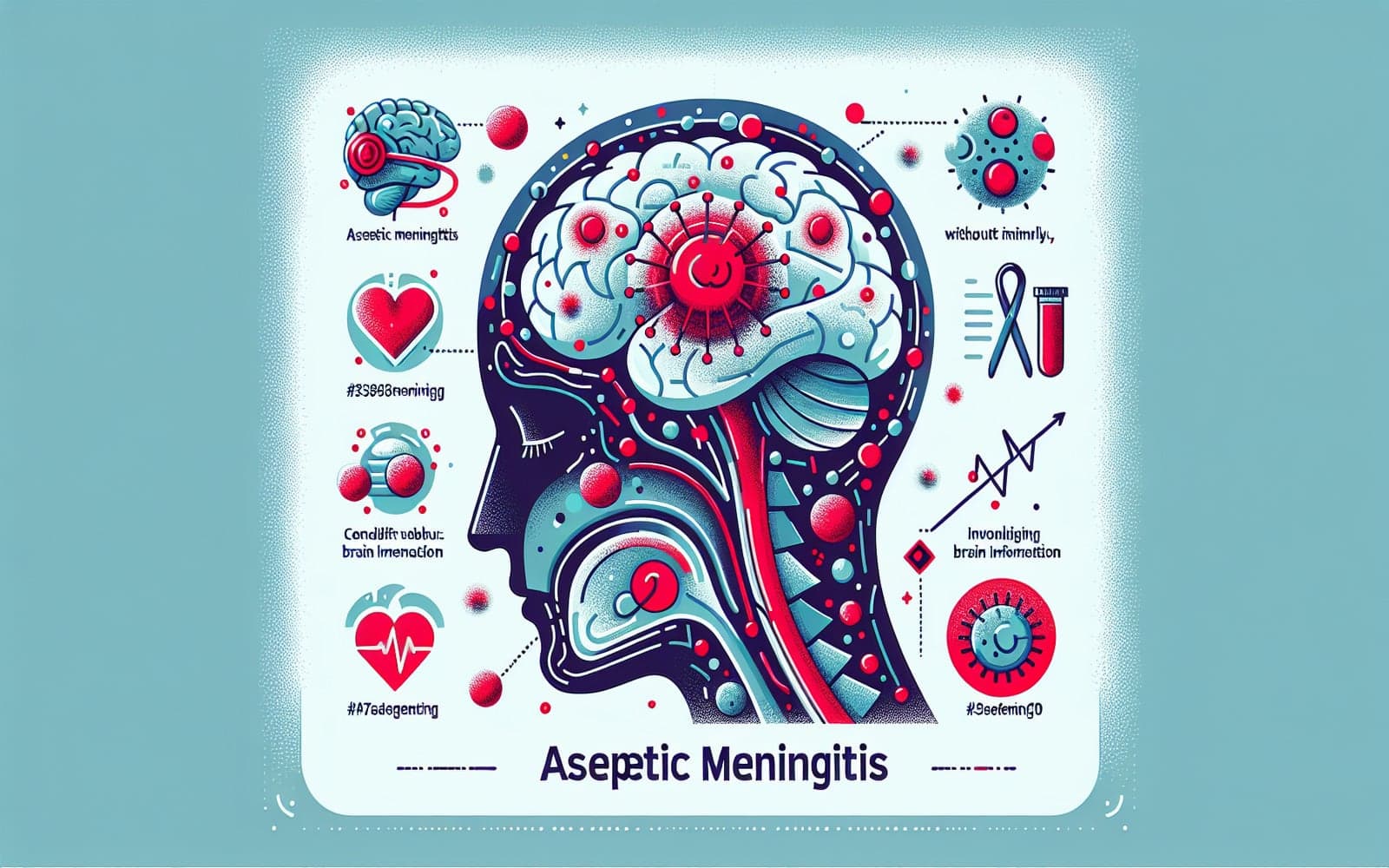Aseptic Meningitis: What You Need to Know About This Brain Inflammation
Aseptic Meningitis: What You Need to Know About This Brain Inflammation
The Big Picture
Aseptic meningitis is inflammation of the protective membranes covering the brain and spinal cord, usually caused by viruses. While it can be serious, most people recover fully with proper care.
Contents
- What Causes Aseptic Meningitis?
- Recognizing the Symptoms
- How is it Diagnosed?
- Treatment Options
What Causes Aseptic Meningitis?
The most common culprits are viruses like enteroviruses and herpes simplex virus. However, there are over 100 possible causes, including other infections, medications, and even cancers. Think of your brain's protective layers as a fortress - various invaders can slip past the defenses and cause inflammation.
Recognizing the Symptoms
Key signs include fever, headache, stiff neck, and sensitivity to light. Unlike bacterial meningitis, mental status usually remains normal. Symptoms often develop over a few days, like a slowly building thunderstorm in your head.

How is it Diagnosed?
Doctors will perform a spinal tap to analyze your cerebrospinal fluid. They'll look for signs of inflammation and run tests to identify the specific cause. It's like CSI for your central nervous system - collecting clues to solve the mystery of what's causing your symptoms.
Treatment Options
Most cases resolve on their own with rest and supportive care. Antiviral medications may be used for certain causes. Antibiotics aren't effective against viruses but may be given initially until bacterial causes are ruled out. Treatment is like giving your immune system backup to fight off the invaders.
FAQs
Is aseptic meningitis contagious?
Some causes can be, but it's generally less contagious than bacterial meningitis.
How long does recovery take?
Most people improve within 7-10 days.
Can it be prevented?
Good hygiene and avoiding close contact with sick individuals can help.
Are there long-term effects?
Most people recover fully, but some may have lingering headaches or fatigue.
When should I seek medical care?
Immediately if you have severe headache, fever, and neck stiffness.
Key Takeaways
While aseptic meningitis can be scary, most cases resolve with proper care and time.
Additional References
- Hasbun R. Acute Aseptic Meningitis Syndrome. In: Meningitis and Encephalitis: Management and Prevention Challenges, Hasbun R (Ed), Springer, 2018.
- McGill F, et al. Incidence, aetiology, and sequelae of viral meningitis in UK adults: a multicentre prospective observational cohort study. Lancet Infect Dis 2018; 18:992.
- Shukla B, et al. Aseptic meningitis in adults and children: Diagnostic and management challenges. J Clin Virol 2017; 94:110.
This article has been reviewed for accuracy by one of the licensed medical doctors working for Doctronic.











